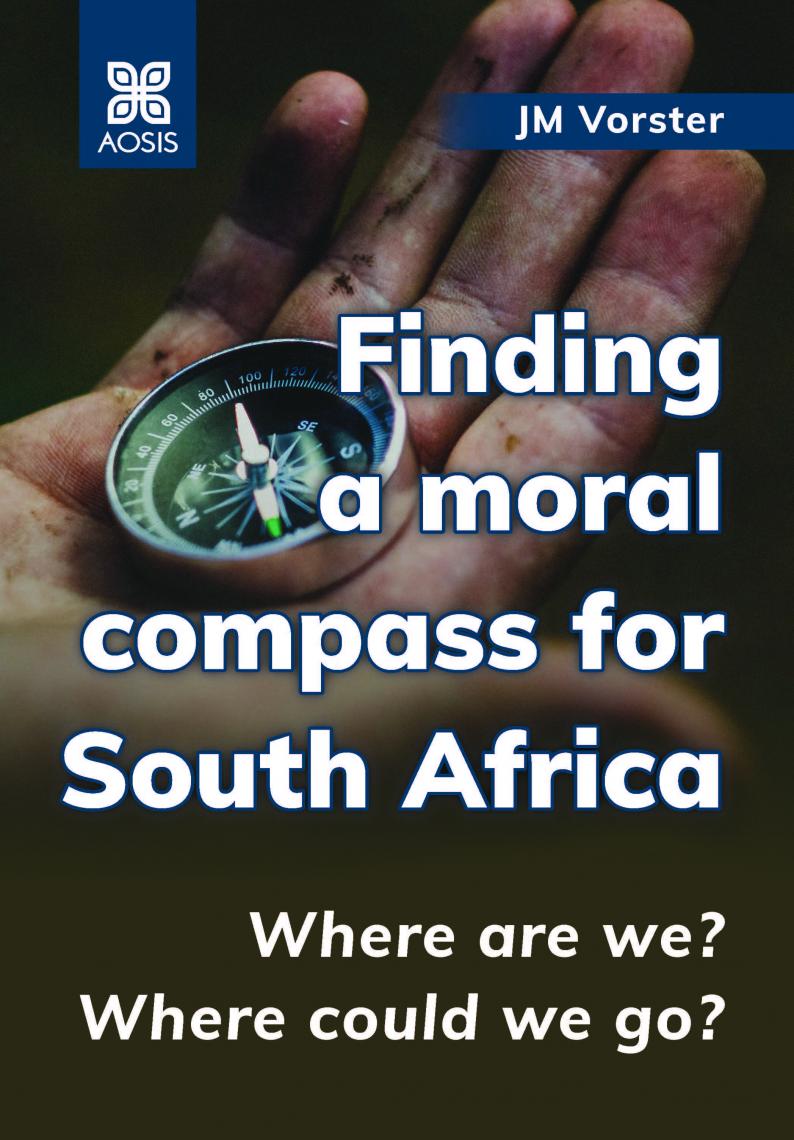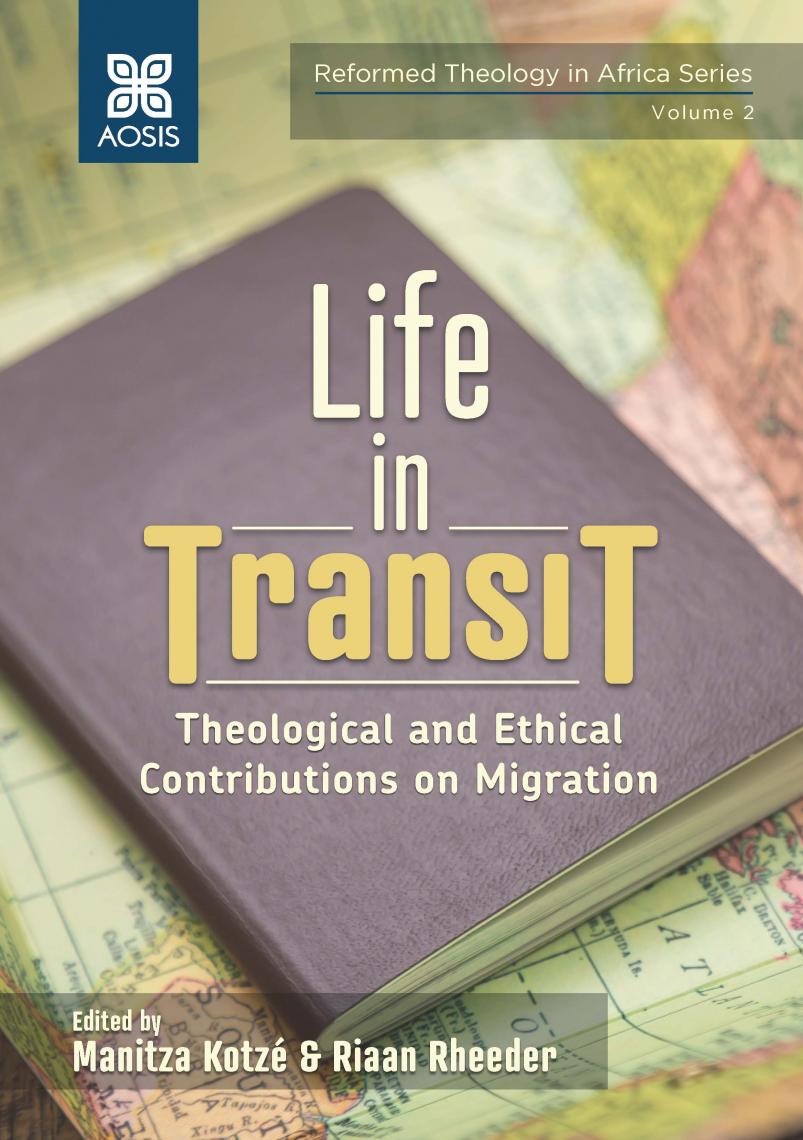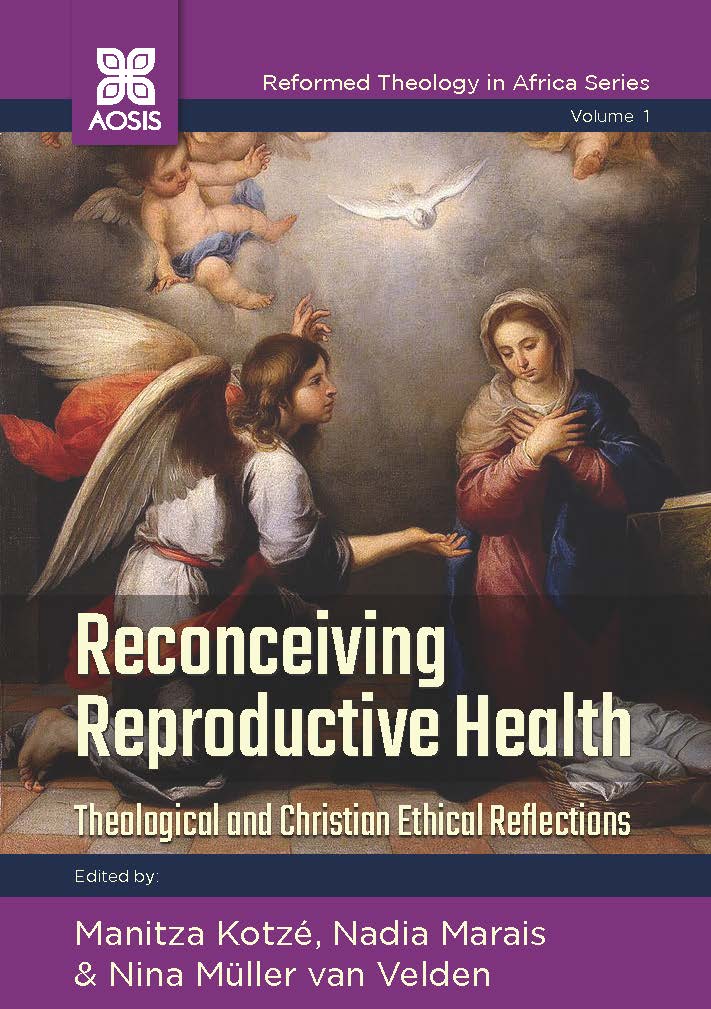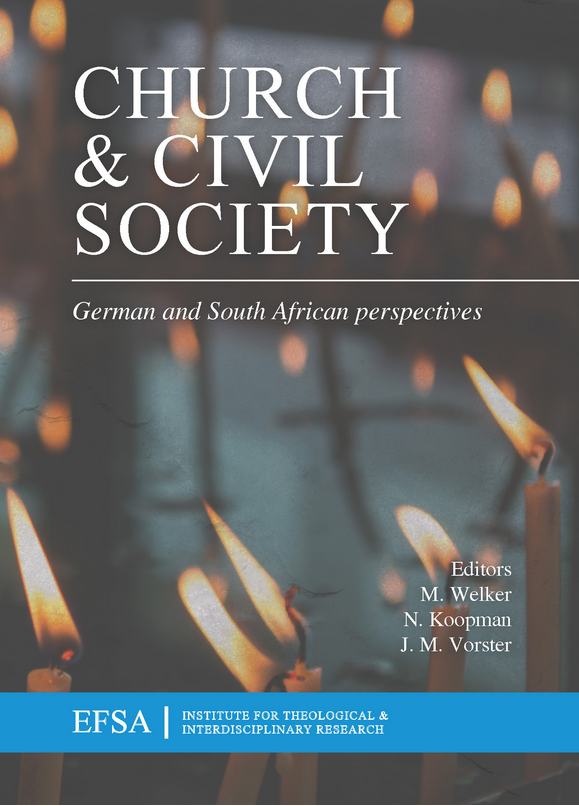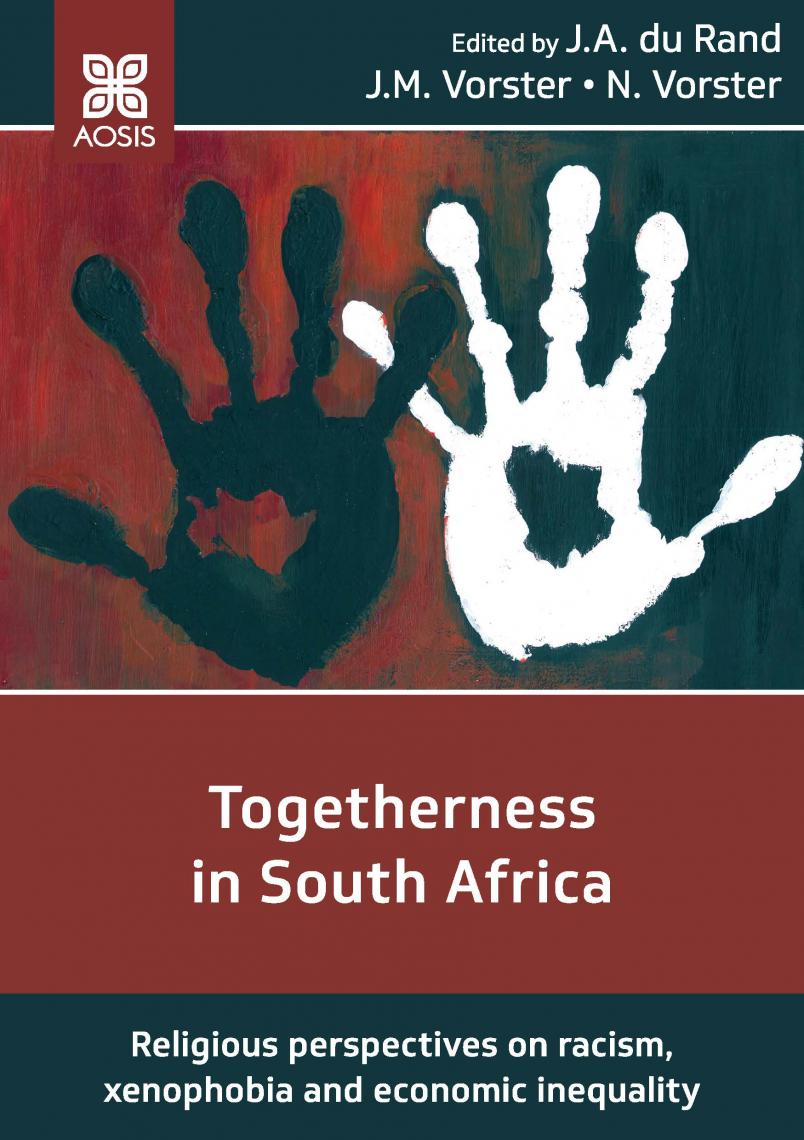Focus:
The application of core concepts of Reformed Theology on moral renewal in the process of nation building and the development of the society.
Subprogramme leader:
Riaan Rheeder (riaan.rheeder@nwu.ac.za)
Members of subprogramme:
Koos Vorster (koos.vorster@nwu.ac.za)
Nico Vorster (nico.vorster@nwu.ac.za)
Manitza Kotze (manitza.kotze@nwu.ac.za)
Objectives:
Nico Vorster (Anthropology)
South Africa is currently experiencing an unprecedented moral crisis. This is reflected in high crime statistics, emerging evidence of state capture and the extent of corruption in South Africa. Several questions arise: Can a society as a whole be sick or is moral degeneration exclusively due to individual pathologies? What are the psycho-social dynamics behind South Africa's moral crisis? What role can Christian theology play in regenerating our society? To answer these questions this sub programme study the theme of moral identity, specifically the role that morality and moral codes play in the constellation of factors that influence identity construction. We also focus on the unique features of Christian identity and the way in which a biblically sound theological anthropology and the church as community of faithful ought to inform this identity. Lastly, we investigate the ways in which the Church can promote virtue and sound ethical principles in larger society. Books that were published with regard to theological anthropology are:
Restoring human dignity in South Africa. Christian anthropology in a new dispensation. PTP, Potchefstroom.
Created in the image of God. Understanding God’s relationship with humanity. Pickwick: Eugene Oregon.
The brightest mirror of God’s works. John Calvin’s theological anthropology. Pickwick: Eugene, Oregon.
Koos Vorster (Human Rights)
Project: Ethical perspectives on human dignity and human rights. Leader: Prof JM Vorster
The Constitution of the Republic of South Africa is based on the core values of human dignity, equality and freedom. The implementation of the Constitution and the chapter on fundamental rights as well as the jurisprudence flowing from the Constitution to enable a just and functional liberal democracy, poses new challenges to Christian ethics. While the core values of the Constitution are deeply embedded in the Christian tradition the effects of these values and the legal interpretations of the fundamental human rights create a new environment for Christian moral agency. This project deals with the new environment and the new challenges. A vast array of scholarly articles and books have been published over the last two decades dealing with Christian ethical perspectives on, for example, racism, xenophobia, sexism, affirmative action, economic justice, ecocide, labour and others. The project is on-going because the development of the Constitutional State excavates many new areas of concern for Christian ethics and new designs for Christian moral agency. Some of the book publications can be mentioned:
Christian attitude in the South African Liberal Democracy, Potchefstroom Theological Publications, Potchefstroom.
Menswaardigheid, Versoening en Vergiffenis, Potchefstroom Theological Publications, Potchefstroom.
Ethical perspectives on human rights, Potchefstroom Theological Publications, Potchefstroom.
The gift of life. Towards an ethic of flourishing personhood, AOSIS Scholarly Books, Cape Town.
Project: Ethical perspectives on the political economy. Leaders: Dr. J. Venter (Political Sciences), Dr. J. Walters (Business ethics), Dr. M. Bøsterud (Business ethics) Prof JM Vorster (Christian ethics).
Unemployment, poverty and economic inequality raises immense moral issues in South Africa today. Prominently among these are the abuse of unskilled people, subjugation of women in the field of labour, exploitation of children, inhuman labour practices, ill treatment of refugees and undocumented immigrants, corruption in the public and private sectors and poor political and corporate management. In this project these emanating concerns are addressed in an inter-disciplinary way with the aim to set values and virtues to deal with these and other issues. Scholarly articles and recently published academic books dealt with some of these topics in an attempt to provide moral guidance and to enhance responsible management. The books are:
- Venter, J. & Bøsterud, M, eds. 2020, Christian ethics and political economy: Markers for a developing South Africa, AOSIS Scholarly Books, Cape Town.
- Bøsterud, M., 2021, A treatise on Christian banking, AOSIS Scholarly Books, Cape Town.
- Walters, J. & Vorster, JM, Prosperity ethics: habits and virtues of smart people in a changing world, AOSIS Scholarly Books, Cape Town
Riaan Rheeder (Bioethics and Human Rights)
The discipline of bioethics as differentiated from medical ethics originated in the 70s of the previous century. It differs from medical ethics in respect of the fact that it focuses not only on the needs and issues of the individual but also on social and environmental aspects connected with health. It has become clear that biomedical ethical proposals and solutions alone are not sufficient for promoting health and that the input of social, economic and environmental determinants of health is necessary. Van Renselaer Potter, an American oncologist, also the first person to use the term bioethics, used cancer as an example to explain bioethics. In the ethical narrative of cancer, the emphasis cannot be on the medical and biological aspects of the individual person, for example the right to health, genetic predisposition and treatment, but part of the ethical context also comprises the social discourse, for example cigarette smoking and air pollution.
A special milestone in the development of global bioethics is the acceptance of the Universal Declaration on Bioethics and Human Rights (UDBHR) of UNESCO by the member states in 2005. The objective of the UDBHR is to unite the global community in terms of bioethical ideals (soft law), which combine individual values (articles 3–7) with social (articles 8–16) and environmental aspects (article 17) of health.
South Africa's health system is facing major and many challenges. Inequality, corruption, poor governance, service delivery and emigration of health workers are among the main problems. One of the focal points of the sub-program is the use of global bio-ethics (UDBHR, https://en.unesco.org/themes/ethics-science-and-technology/bioethics-and-human-rights ) to find solutions to some of the many ethical problems of the South Africa health system.
Global Bio-ethical related articles (focusing on the 15 principles of the Universal declaration of Bioethics and Human Rights):
- Global bioethics and human rights in an African context: A reformed theological discourse on global bioethics as a new human rights ethos (https://indieskriflig.org.za/index.php/skriflig/article/view/2080).
- Bio-etiek sonder grense en menswaardigheid: 'n Gereformeerd-etiese beoordeling. (https://verbumetecclesia.org.za/index.php/ve/article/view/830).
- Baat as bio-etiek sonder grense: ’n gereformeerdetiese beoordeling van artikel 4 van die universele deklarasie vir bio-etiek en menseregte van UNESCO (https://www.ajol.info/index.php/actat/issue/view/13392)
- Global Bioethics and Nonmaleficence. A Christian-ethical Evaluation of Article 4 of the Universal Declaration on Bioethics and Human Rights by Unesco (see Journal of Theology for Southern Africa 152 (July 2015) 131-155).
- Universele bio-etiek en outonomie: ’n Christelike besinning op die begrip outonomie binne die Unesco universele deklarasie van bio-etiek en menseregte (https://www.litnet.co.za/universele-bio-etiek-en-outonomie-n-christelike-besinning-op-die-begrip-outonomie-binne-di/).
- Beskerm deur ingeligte toestemming : 'n gereformeerd-etiese besinning oor artikel 6 van die Universele Verklaring van Bio-etiek en Menseregte. (https://journals.co.za/doi/10.10520/EJC179139).
- Protected by Substitute Consent as a Human Right: A Reformed Perspective(https://journals.sagepub.com/doi/full/10.1177/ 0953946815610023).
- Persons without capacity as participants in research : a Kingdom perspective on article 7(b) of UNESCO's Universal Declaration on Bioethics and Human Rights (https://journals.co.zav/doi/abs/10.17570/stj.2016.v2n1.a20).
- An Ethos of Vulnerability: A Kingdom Perspective on the Principle of Respect for Vulnerability within the UNESCO Declaration on Bioethics and Human Rights (Asia Journal of Theology. Apr2017, Vol. 31 Issue 1, p58-81. 24p).
- Respect for privacy and confidentiality as a global bioethical principle: Own reasons from a Protestant perspective (https://www.researchgate.net/publication/325777292_Respect_for_privacy_and_confidentiality_as_a_global_bioethical_principle_Own_reasons_from_a_Protestant_perspective).
- Non-Discrimination And Non-Stigmatisation As Global Bioethical Principles: Introducing An Overdue Protestant Discussion With Unesco (https://scriptura.journals.ac.za/pub/article/view/1809).
- Respect for cultural diversity as a global bioethical principle. Own reasons from a Protestant perspective. (https://www.researchgate.net/publication/321226484_Respect_for_cultural_diversity_as_a_global_bioethical_principle_Own_reasons_from_a_Protestant_perspective).
- Solidarity as a global bioethical principle : own reasons for a culture of solidarity from a Protestant perspective. (https://journals.co.za/doi/abs/10.4102/ve.v39i1.1816).
- Social responsibility for health as a global bioethical principle - a Protestant participation in the discussion with UNESCO (https://www.researchgate.net/publication/340395995_Social_responsibility_for_health_as_a_global_bioethical_principle_-_a_Protestant_participation_in_the_discussion_with_UNESCO).
- Benefit-sharing as a global bioethical principle : a participating dialogue grounded on a Protestant perspective on fellowship (https://journals.co.za/doi/abs/10.4102/ids.v53i1.2502).
- Protecting the Health of Future Generations as a Global Bioethical Principle: A Broad Protestant Perspective (https://link.springer.com/article/10.1007/s10943-021-01189-7).
- Environmental protection as a global bioethical principle: Protestant faith tradition in conversation with United Nations Educational, Scientific and Cultural Organization (https://verbumetecclesia.org.za/index.php/ve/article/view/2186).
Manitza Kotzé (Bioethics: Biotechnology and transhumanism)
Human biotechnological advances often offer unique challenges to Christian ethics, both developments that raise questions about the line between therapy and enhancement, where genetic modifications are made within the realm of what is achievable in nature, and those that aim to transcend the limitations of what it means to be human. Even within the public sphere and in secular ethical discussion, the rhetoric employed frequently utilized religious language and terminology such as “playing God”. Christian ethics can make a meaningful contribution. A number of different theological points of departure can add to this conversation, including diverse doctrinal loci and themes such as human dignity and flourishing.
Recent articles:
Wicked solutions to wicked problems? A Christian ethical reflection on synthetic biology as nature conservation (2020).
https://doi.org/10.1163/23528230-8502A005
A Christian Doctrine of Sin and Transhumanism in the Public Sphere: The Promethean Concern of Pride (2020). https://doi.org/10.7833/119-2-1697
A Life with Limits: A Christian Ethical Investigation of Radically Prolonging Human Lifespans (2019). https://doi.org/10.1177%2F0953946818808141
The Theological Ethics of Human Enhancement: Genetic engineering, robotics and nanotechnology (2018). https://doi.org/10.4102/ids.v52i3.2323
Human genetic engineering and social justice in South Africa: Jürgen Moltmann and human dignity (2016). https://doi.org/10.4102/ids.v52i3.2323
Book Projects:
2017: Togetherness in South Africa Religious perspectives on racism, xenophobia and economic inequality
International Networks
North-West University Bioethics Unit Of The International Network of the WHO Chair in Bioethics within Theology (http://www.int-chair-bioethics.org/).
Guidelines for postgraduate studies for admission:
- Admission to postgraduate study is handled by the Manager: M&D-Programs, in collaboration with the sub-program management (Proff AL Rheeder, N. Vorster, JM Vorster, Dr M Kotze). Selection is based on academic results, previous projects and / or research projects, and the guidelines set out below (Yearbook 2017).
- The following are guidelines which a graduate student must meet before he or she can be considered for further studies within the sub-program:
- The student must meet the NWU's guidelines for admission to postgraduate studies.
- A thorough knowledge of the epistemology of ethics are expected.
- Students should be familiar with the basic concepts in ethics.
- A research document (1000 words or 2 pages) must be submitted management at the sub-program for consideration:
- This document must identify the subject of the proposed study and the research problem.
- A brief background should be given to explain why the specific topic of interest.
- It should be clear that the research motivation went off for intensive reading.
- A student should be sure why and what he / she wants to study.

